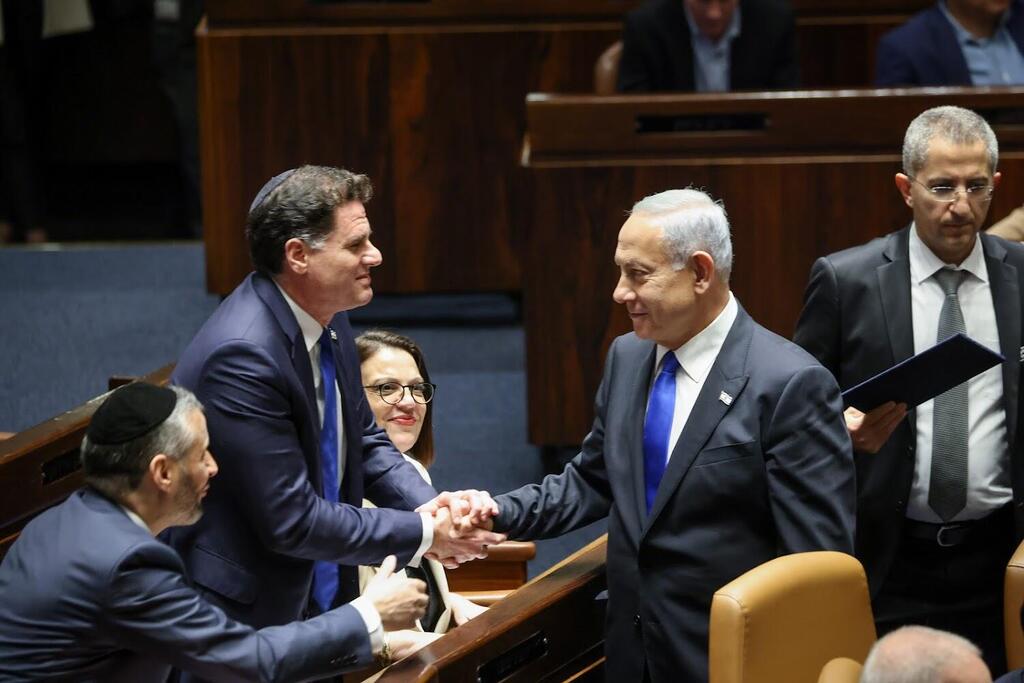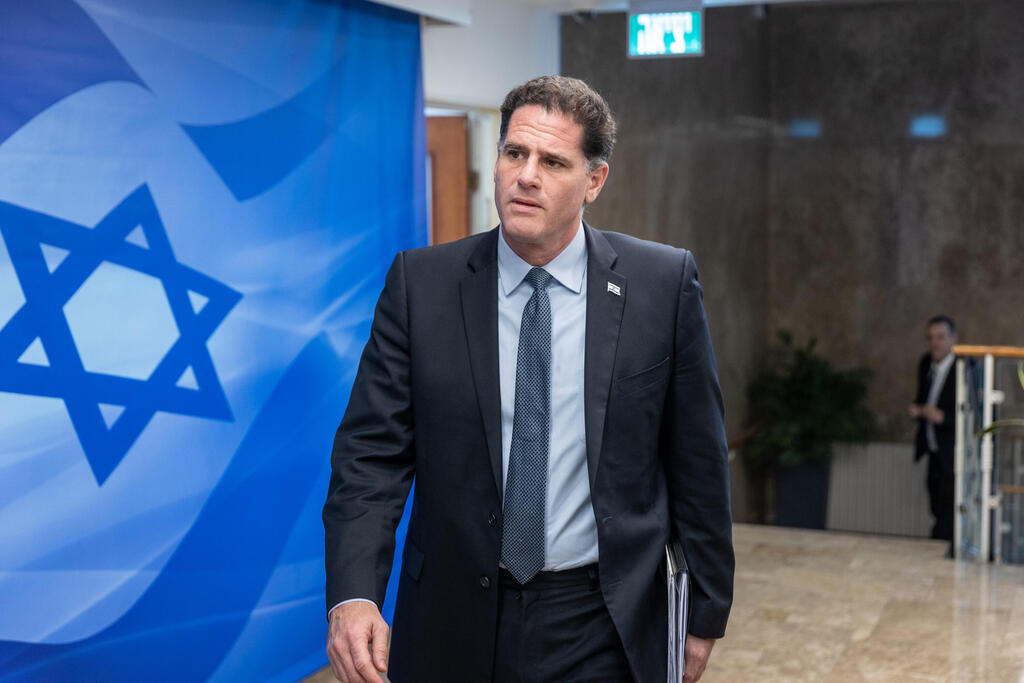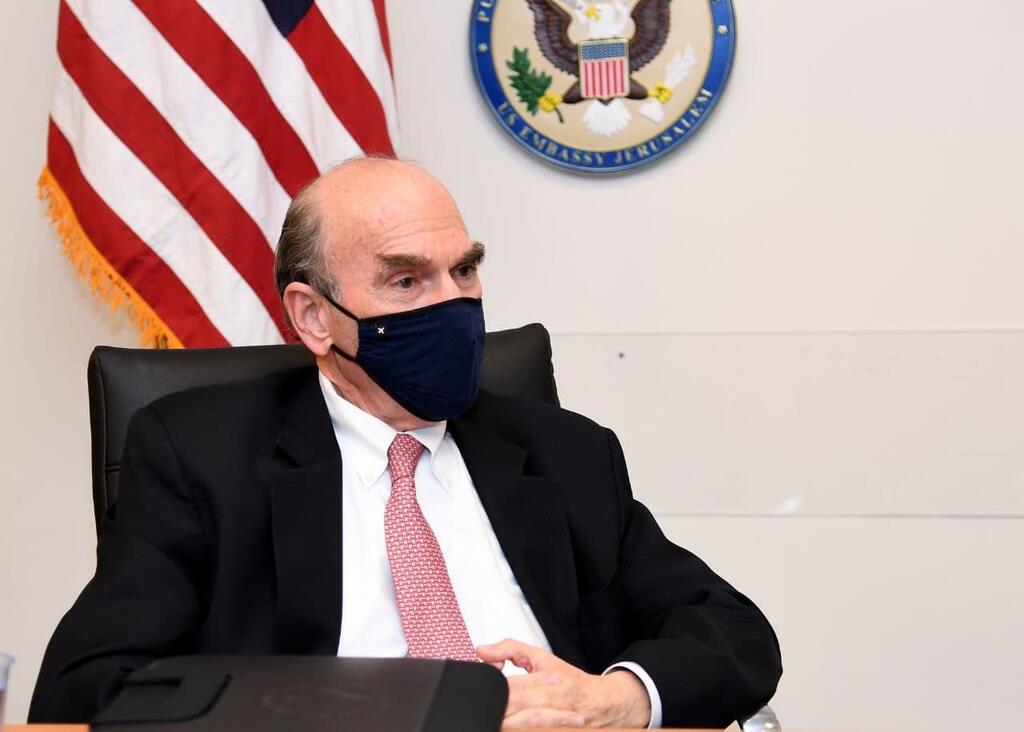Getting your Trinity Audio player ready...
Since the start of the war in Gaza, Ron Dermer, Israel's Minister of Strategic Affairs, has been conspicuously absent from the public eye and has not briefed the Knesset on his activities. Yet, he plays a critical role in shaping the nation’s war strategy. In recent months, especially following the departure of former IDF Chiefs of Staff Benny Gantz and Gadi Eizenkot from the government, Dermer has emerged as one of the top three war decision-makers, alongside Prime Minister Benjamin Netanyahu and Defense Minister Yoav Gallant.
He has been instrumental in key decisions, such as retaining control of the Philadelphi Corridor, even at the expense of a potential hostage deal, and has been involved in high-level discussions about targeting Hezbollah’s leader, Hassan Nasrallah. Dermer has also accompanied Netanyahu to the United Nations and assumed responsibility for proposing mechanisms to conclude the conflict in Lebanon.
Despite his significant influence on national policy, Dermer's actions suggest a lack of engagement with the Israeli public. An investigation by Telem magazine, assisted by Uri Tuval from the Berl Katznelson Foundation, reveals that Dermer has scarcely communicated with the Israeli populace. Since becoming a minister, his appearances before Knesset committees, particularly the Foreign Affairs and Defense Committee, have been rare and cloaked in confidentiality, leaving no public record of his attendance.
Dermer, who advocates for transparent hearings for Supreme Court nominees in line with American constitutional practices, does not apply these standards to himself and refrains from openly reporting his actions to the public or its representatives. He also avoids using social media or other communication channels to update the public on his activities. His Twitter posts are predominantly in English, and since October 7, only three tweets about Israeli holidays like Holocaust Remembrance Day and Purim have been in Hebrew. Unlike other ministers and politicians, Dermer does not produce video updates for the public or respond to daily events.
Furthermore, Dermer does not grant interviews to Israeli media. Although he has held public roles for about 12 years, such as Israel's ambassador and economic attaché in the U.S., Telem could find only one interview with an Israeli media outlet since October 7. In that interview, Dermer explained his boycott of Israeli media dating back to 2009, due to a journalist allegedly not seeking his comment on a story about Netanyahu. While ignoring the Israeli public, Dermer frequently appears on foreign television networks, international podcasts, and gives personal interviews. The investigation struggled to find even a brief statement from him in an Israeli newspaper (Israel Hayom) since October 7. It seems Dermer has little interest in engaging with the Israeli public.
On the other hand, Dermer's schedules from January 1, 2023, to March 31, 2024, reveal that Netanyahu is Dermer's sole authority figure. Dermer has been closely aligned with Netanyahu since 2000, when Netanyahu was on a hiatus from public life. Upon Netanyahu’s return to politics in 2002, Dermer began receiving roles from him: advisor in his office when he was finance minister, economic attaché in Washington, political advisor in his office when elected prime minister in 2009, and from 2013 to 2021, ambassador to the United States. Dermer also authored Netanyahu’s speeches in English.
Even after becoming a minister, Dermer appears to view himself more as Netanyahu's personal advisor than a public decision-maker. Telem magazine's investigation discovered that in the 15 months covered by the diaries, Dermer held 570 meetings, sessions and discussions with Netanyahu, alongside dozens of government and cabinet meetings, averaging nearly two meetings per working day. Interestingly, when they converse privately, they speak in English.
In contrast, during July-September 2023, amid the start of the school year and before the war broke out, Education Minister Yoav Kish had only three personal meetings with Netanyahu, averaging 0.04 meetings per working day.
A hawkish stance on US-Israel relations
While he remains elusive and uncommunicative with the Israeli public, a recent revelation has uncovered his deep ties with the Jewish Institute for National Security of America (JINSA). This Washington-based think tank, known for its Republican and hawkish stance, could potentially reshape Israel's security doctrine.
JINSA is deeply entrenched in Republican circles and often criticizes President Joe Biden. Notable figures within JINSA include Elliott Abrams, a former deputy national security advisor under the envoy on Iran to presidents Bush and Trump, who also chairs the Tikvah Fund, a financial backer of the Kohelet Policy Forum. Another prominent figure is Major General Yaakov Amidror, a former head of Israel's National Security Council.
In July 2021, Dermer joined JINSA as a research fellow. The organization primarily advocates for a mutual defense pact between Israel and the United States, which would obligate the U.S. to respond militarily if Israel were attacked. Historically, Israel's defense establishment has resisted such agreements, fearing that they might restrict Israel's military independence and necessitate U.S. approval for major actions like striking Iran, effectively making Israel a client state. JINSA argues such an agreement would bolster Israeli deterrence, though it is largely motivated by American interests, as it would require Israel to purchase more American arms.
Since moving from JINSA to the Israeli government, Dermer has been a forceful advocate for this agreement. Reports suggest that in August 2023, Netanyahu dispatched him to Washington to engage with senior U.S. officials to advance this agreement, as part of broader normalization efforts with Saudi Arabia.
Dermer's diaries reveal that during these discussions he maintained a close relationship with JINSA officials, especially its President and CEO, Michael Makovsky. In the first 15 months of his ministerial tenure, Dermer met or communicated with JINSA representatives 23 times. In the summer of 2023, as he pushed the defense agreement agenda with Netanyahu, the IDF chief of staff, the White House, and Secretary of State Antony Blinken, Dermer's interactions with JINSA intensified, with 13 meetings or conversations, including visits from JINSA leaders to his office in Jerusalem.
Meanwhile, JINSA drafted a comprehensive mutual defense agreement and organized events aimed at swaying American public opinion, particularly among decision-makers. Thus, Dermer, who remains silent toward Israeli citizens, is deeply engaged with an American organization funded by private money, working behind the scenes to orchestrate a significant shift in Israel's security approach and policy.
Get the Ynetnews app on your smartphone:
Google Play: https://bit.ly/4eJ37pE
Apple App Store: https://bit.ly/3ZL7iNv
First published: 15:55, 10.22.24





